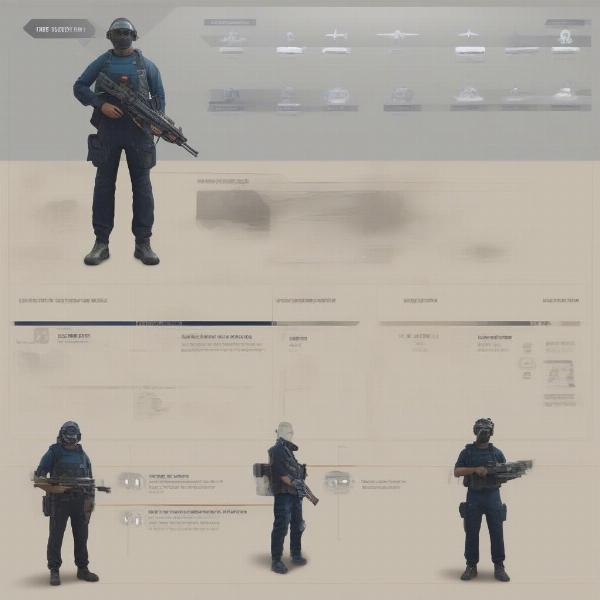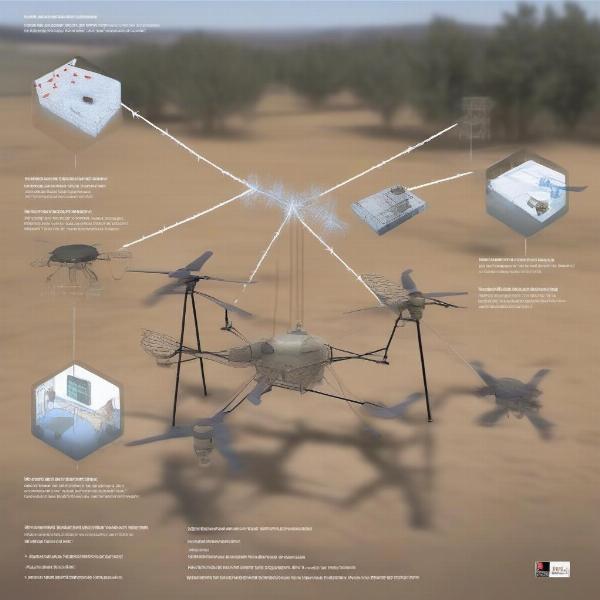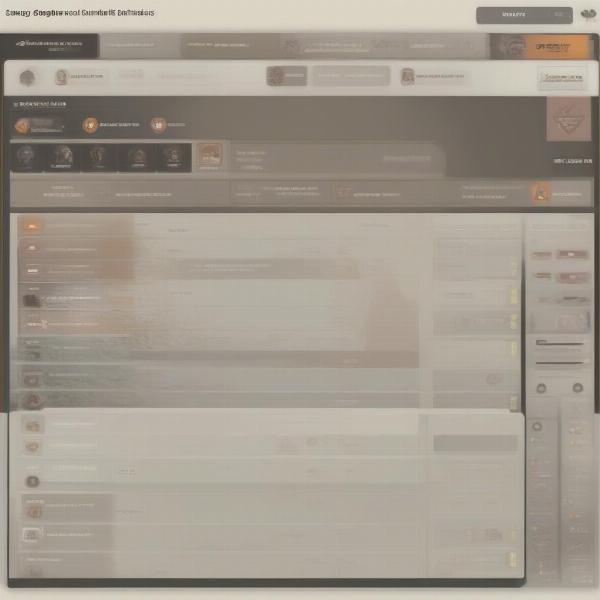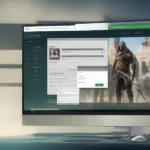Rainbow Six Siege, a tactical first-person shooter, demands precise execution and strategic thinking. Knowing how to start a game effectively is crucial for success. This guide covers everything from selecting an operator to coordinating with your team for a victorious start.
Understanding the Basics of Starting a Match
Before diving into the specifics of starting a game in Rainbow Six Siege, understanding the fundamental flow is essential. The process involves operator selection, gadget deployment, and initial tactical positioning. These initial moments can dictate the outcome of the round, so preparation is key. Effective communication and a solid understanding of the map are also crucial for a strong start. Let’s delve deeper into these elements.
Operator Selection: Your First Strategic Decision
Choosing the right operator is paramount. Consider the map, your team’s composition, and your preferred playstyle. Attackers need to breach, plant the defuser, and eliminate defenders, while defenders must fortify their position and protect the objective. Do you prefer a more aggressive or supportive role? Choosing an operator that complements your team’s strategy and the map’s layout is crucial for maximizing your impact from the start.
Gadget Deployment and Initial Positioning
Once operators are chosen, preparation phase begins. Attackers utilize drones to gather intel on enemy positions and objective location. Defenders reinforce walls, deploy gadgets, and establish lines of sight. Smart gadget placement and early positioning are essential for gaining an advantage in the first crucial seconds of the round. Where you position yourself at the beginning of the round often dictates your initial engagements.
 Operator Selection and Preparation Phase
Operator Selection and Preparation Phase
Coordinating with Your Team: The Power of Synergy
Rainbow Six Siege is a team-based game. Communication is key, especially at the start of the round. Discuss strategies, call out enemy positions, and coordinate your initial pushes or defensive setups. A cohesive team that works together from the beginning has a significant advantage. Clear communication about roles, entry points, and gadget usage can make or break a round.
Map Knowledge: Your Tactical Advantage
Knowing the map layout is a significant advantage. Understanding potential entry points, chokepoints, and objective locations allows for better positioning and strategic decision-making. Study the maps, learn the common routes, and use this knowledge to your advantage from the very start of the game. This knowledge helps predict enemy movements and plan more effective strategies.
Advanced Starting Strategies
Beyond the basics, there are more nuanced strategies for starting a game effectively. These include coordinated drone pushes, early aggression, and defensive traps. Understanding these advanced techniques can elevate your gameplay and significantly increase your chances of winning. These tactics require practice and coordination, but the payoff can be game-changing.
 Advanced Starting Strategies and Coordinated Drone Push
Advanced Starting Strategies and Coordinated Drone Push
Adapting to the Situation: Flexibility is Key
While planning is essential, flexibility is equally important. Be prepared to adapt your strategy based on the enemy’s actions and the unfolding situation. If your initial plan doesn’t work, be ready to adjust and react accordingly. Sometimes, a quick change in strategy is necessary to salvage a round.
Common Mistakes to Avoid
Avoiding common mistakes can dramatically improve your starting performance. These include rushing in without proper intel, poor communication, and predictable strategies. By avoiding these pitfalls, you can set yourself up for success. Over-reliance on a single strategy can make your team predictable, making you vulnerable to counter-strategies.
Practicing Your Start: Honing Your Skills
Practice makes perfect. Take time to practice your starting strategies in custom games or casual matches. This allows you to experiment with different operators, gadgets, and approaches without the pressure of ranked play. Consistent practice is the key to mastering any aspect of Rainbow Six Siege, and starting strong is no exception.
 Practicing Your Start in Custom Games
Practicing Your Start in Custom Games
“A strong start is half the battle won in Siege. Effective preparation and communication are key to dominating from the get-go.” – Alex “Maverick” Rodriguez, Pro R6S Player
“Don’t underestimate the power of map knowledge. Understanding the terrain is a crucial advantage in those initial seconds.” – Sarah “Ash” Johnson, R6S Analyst
Troubleshooting Common Starting Issues
Sometimes, things don’t go as planned. If you encounter issues, troubleshoot by reviewing your strategy, checking your equipment, and communicating with your team. Identifying the problem and adapting quickly can help you overcome these challenges.
Tips for New Players
If you’re new to Rainbow Six Siege, starting a game can feel overwhelming. Focus on learning the basic operators, understanding the maps, and communicating with your team. Don’t be afraid to ask for help and experiment with different playstyles.
Conclusion
Knowing How To Start A Game In Rainbow Six Siege is fundamental to success. By mastering operator selection, gadget deployment, team coordination, and map knowledge, you can gain a significant advantage. Remember to practice your strategies and adapt to the ever-changing dynamics of the game. Remember, a strong start sets the stage for a victorious round.
FAQ
-
What is the most important thing to consider when starting a game in Rainbow Six Siege?
Operator selection and team communication are paramount for a successful start. -
How can I improve my map knowledge?
Spend time in custom games exploring the maps and learning common routes and callouts. -
What are some common mistakes to avoid when starting a round?
Rushing in without intel and neglecting team communication are common pitfalls to avoid. -
How can I adapt to unexpected situations at the start of a round?
Maintain open communication with your team and be flexible with your strategy. -
What’s the best way to practice starting strategies?
Utilize custom games to experiment with different operators, gadgets, and approaches. -
Why is operator selection so important?
Choosing the right operator based on the map, team composition, and your playstyle is crucial for maximizing your impact. -
How does communication contribute to a successful start?
Clear communication allows for coordinated pushes, effective gadget usage, and quick adaptation to changing circumstances.

